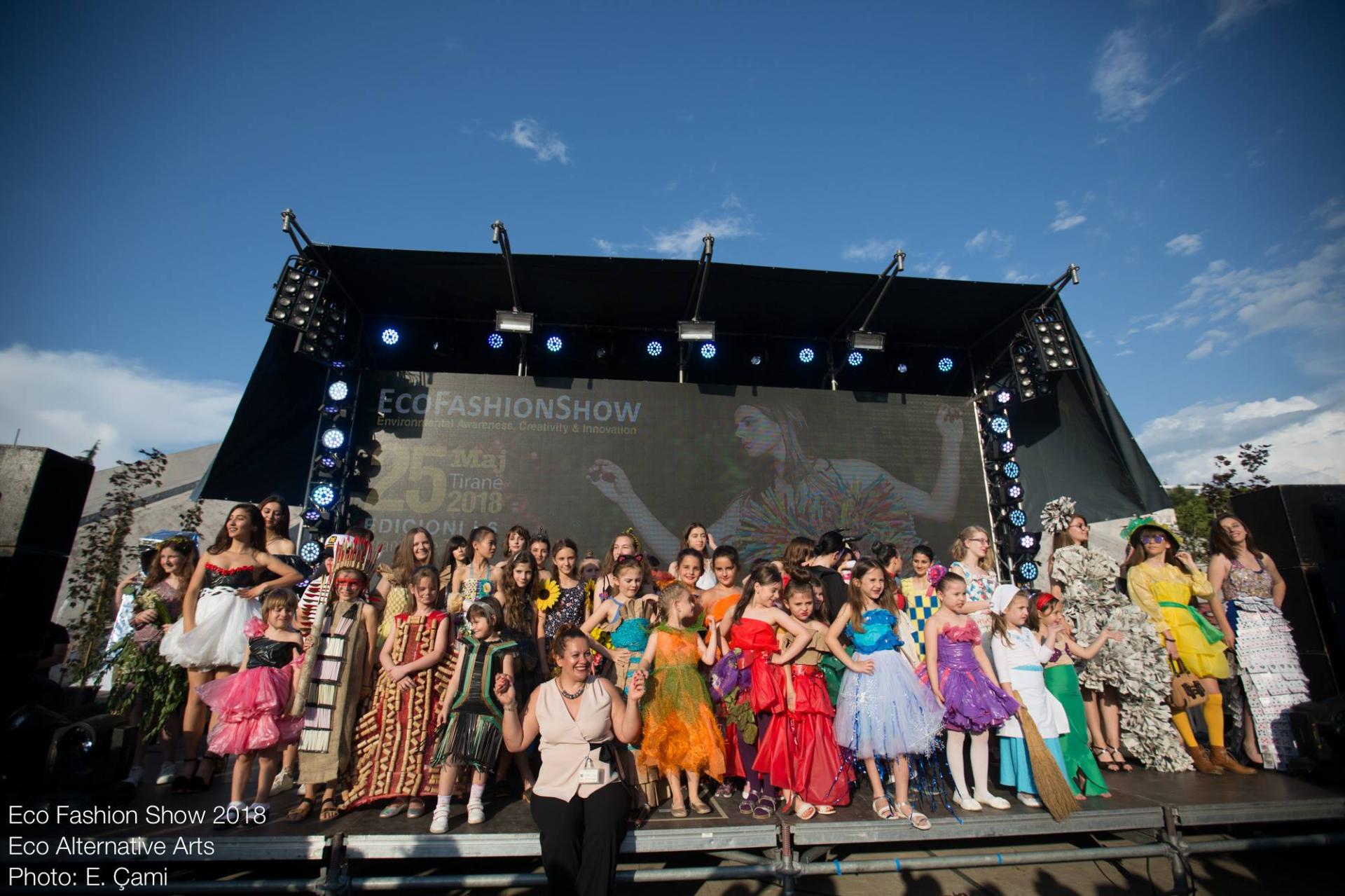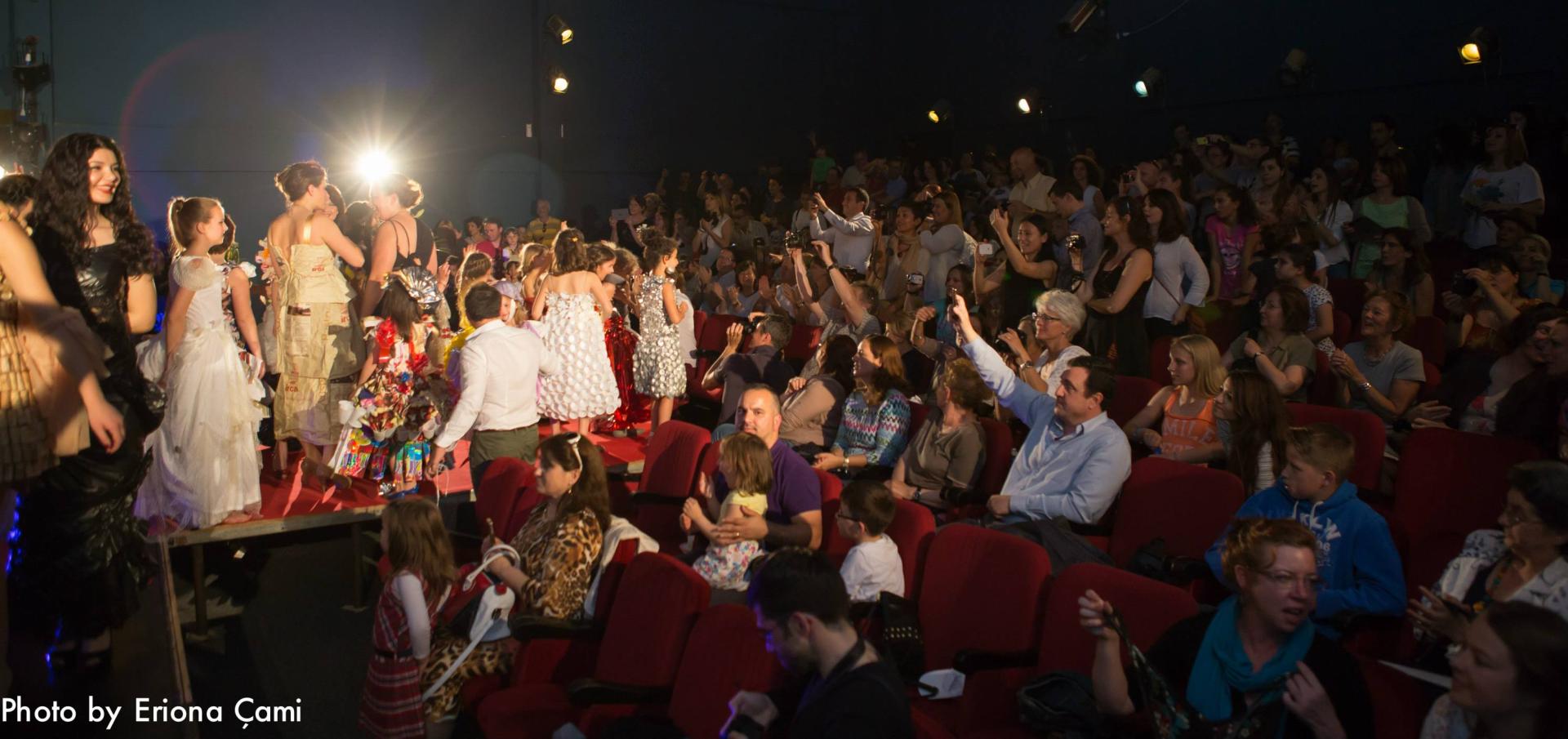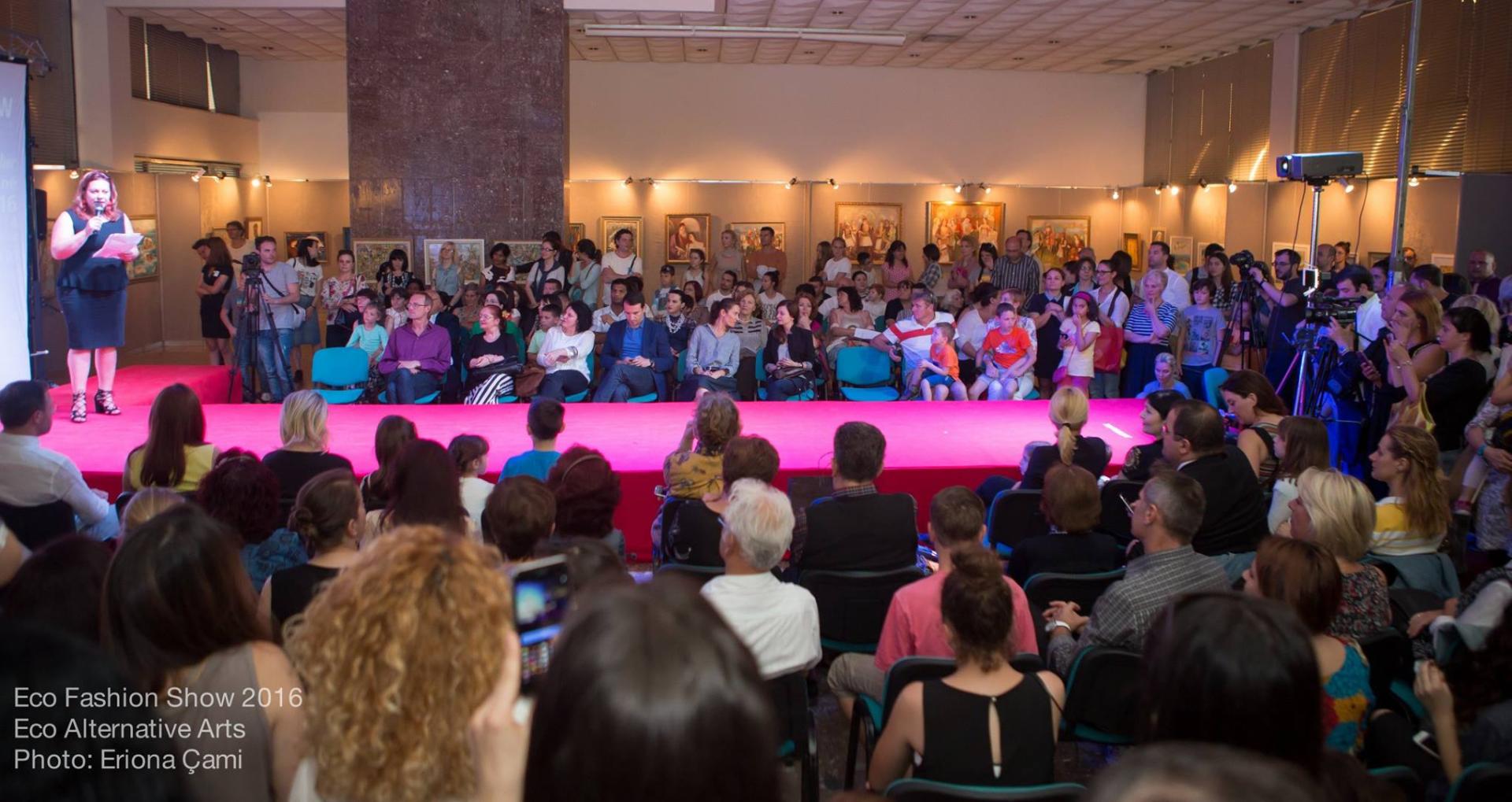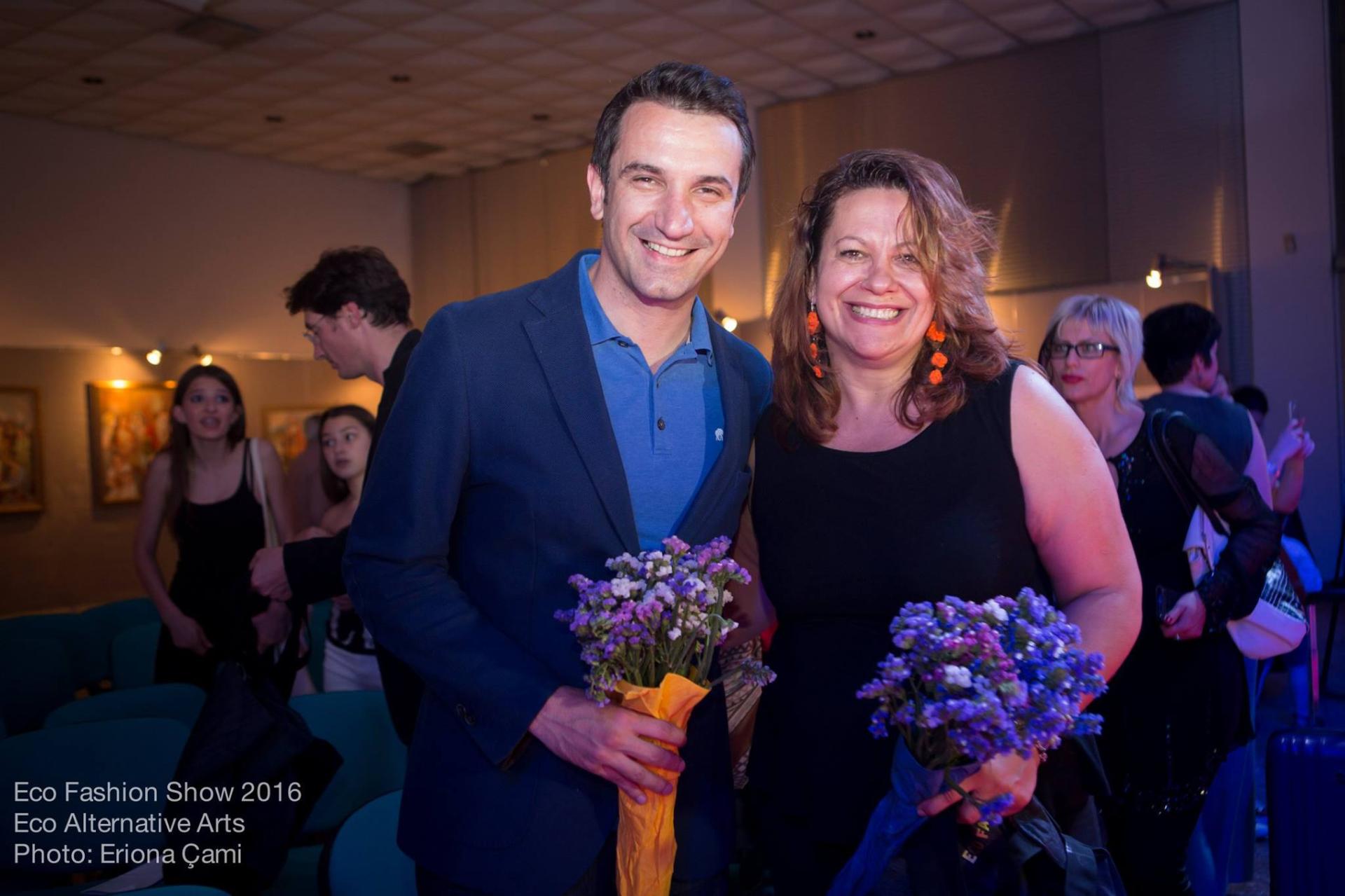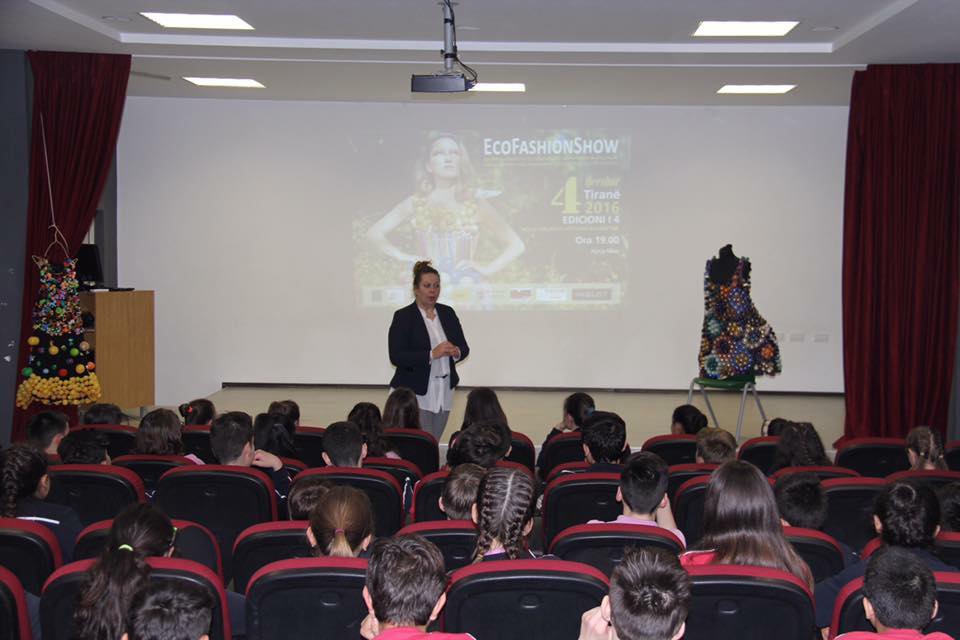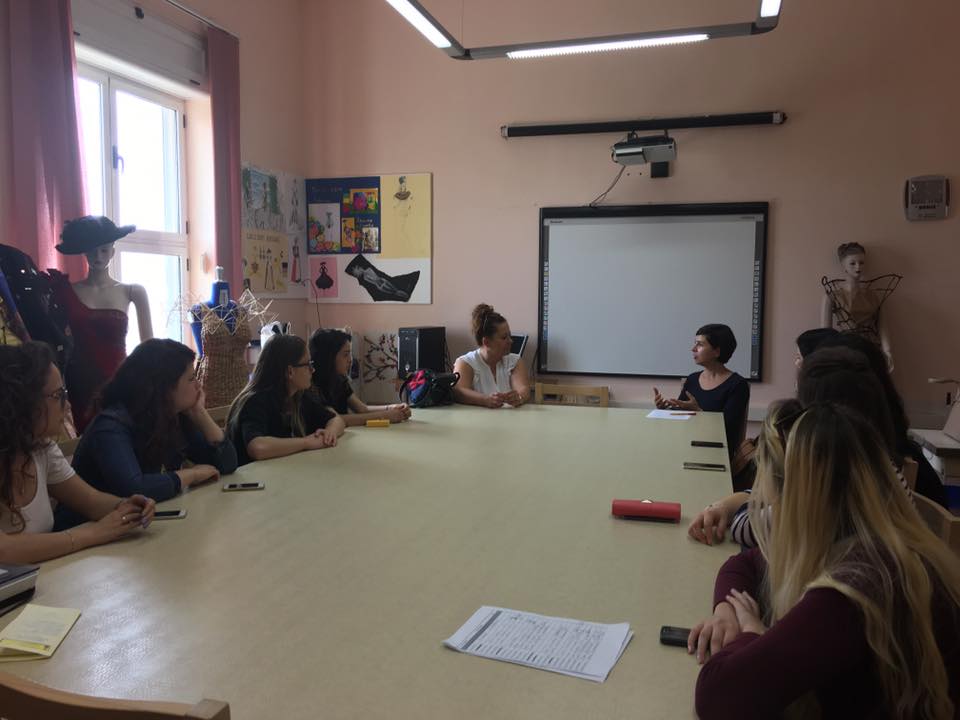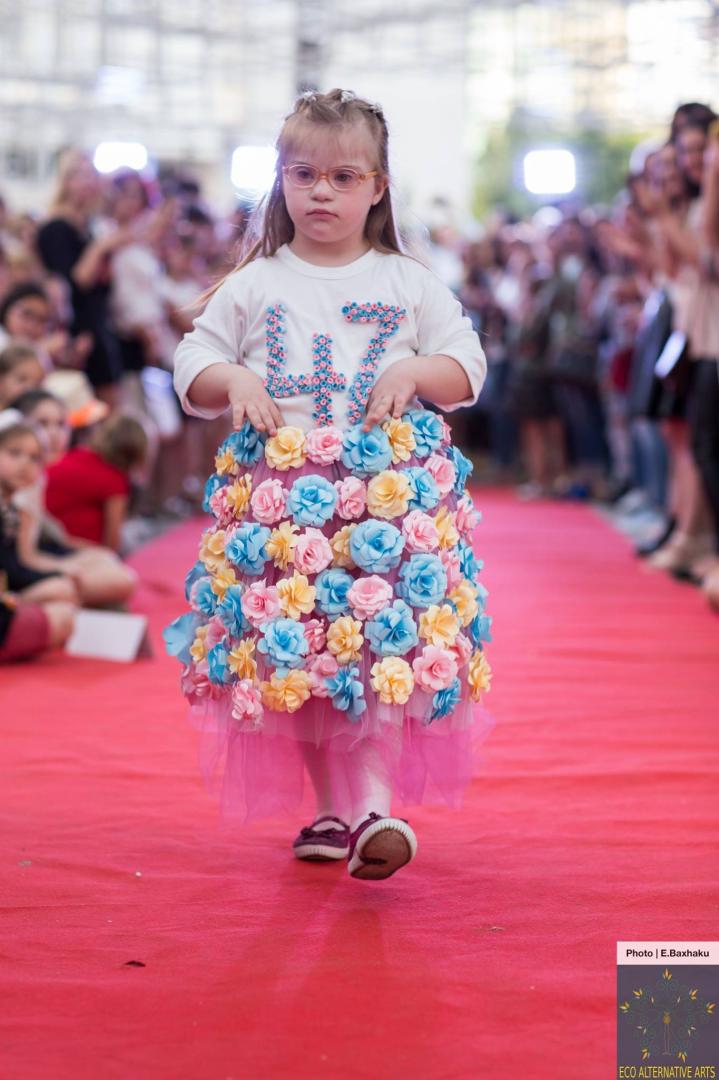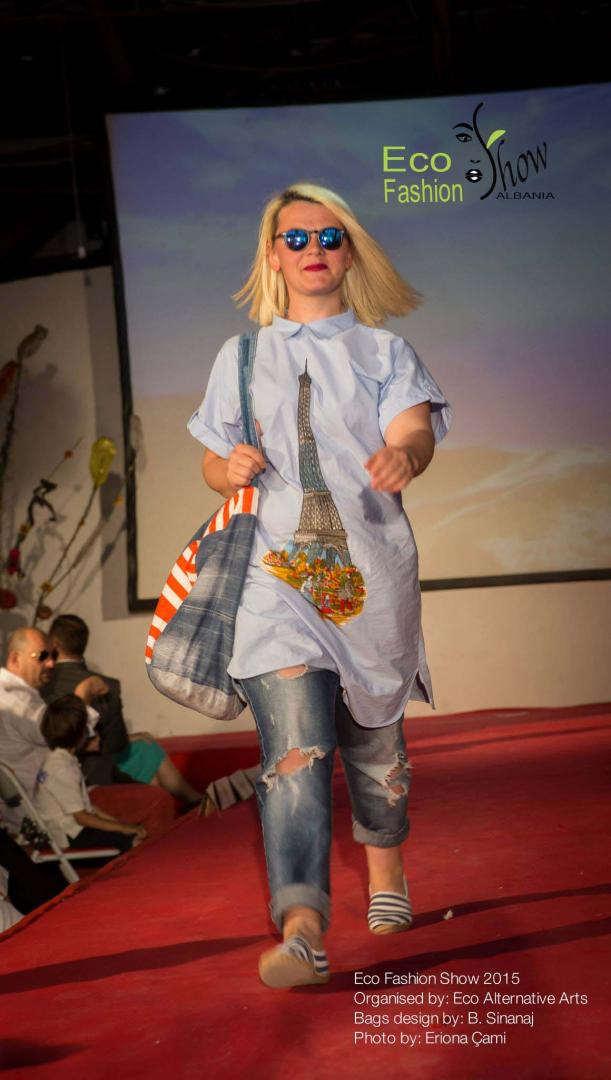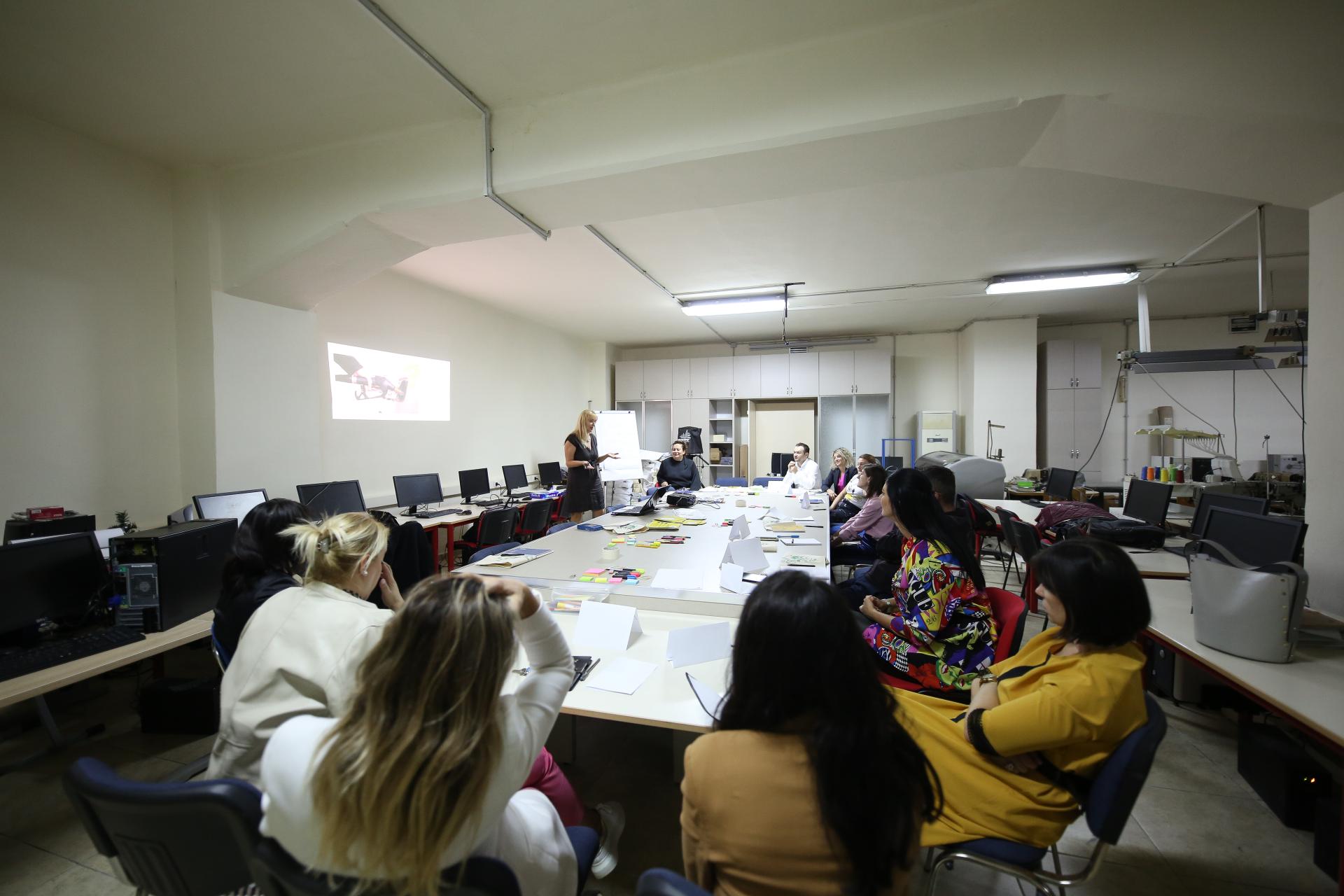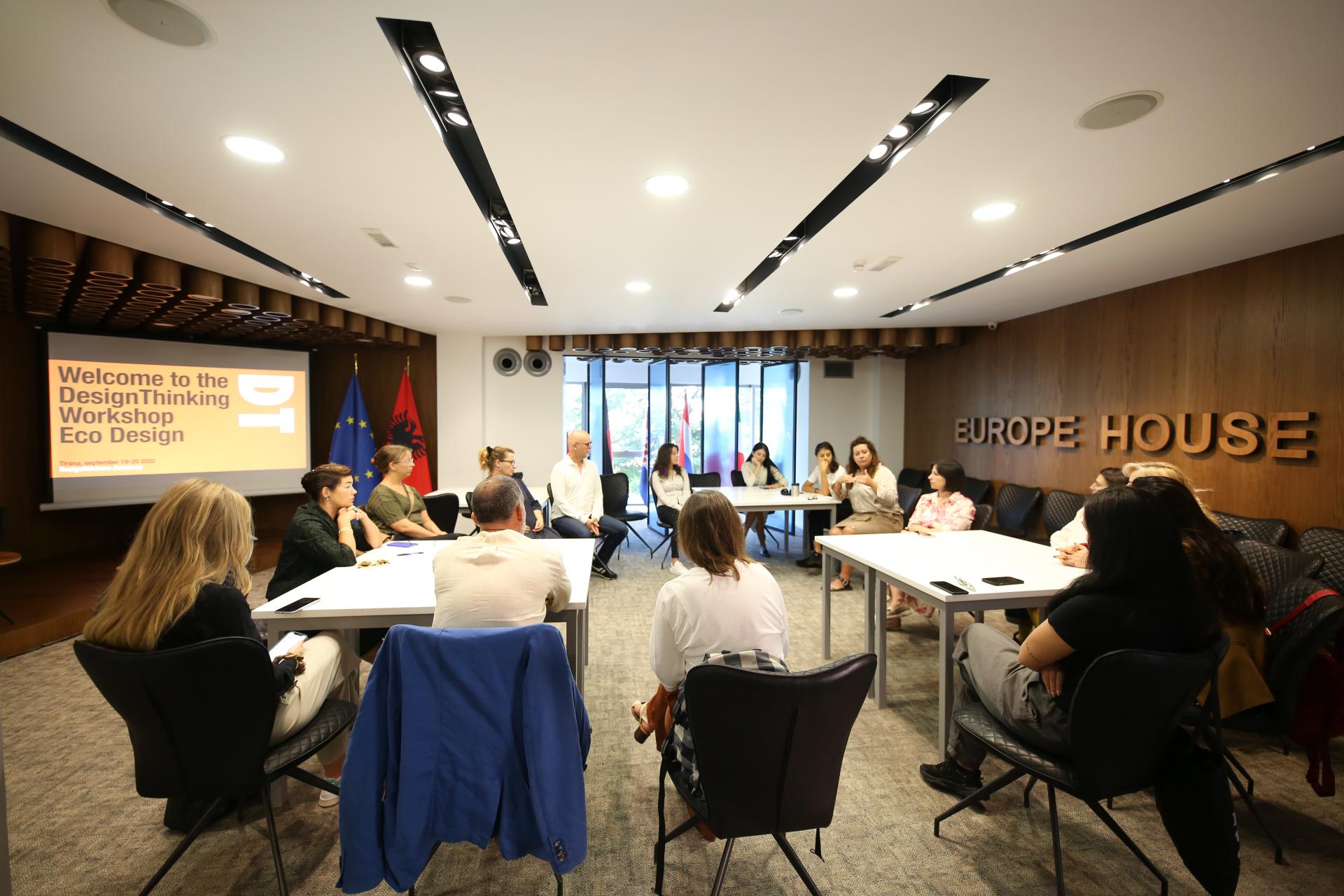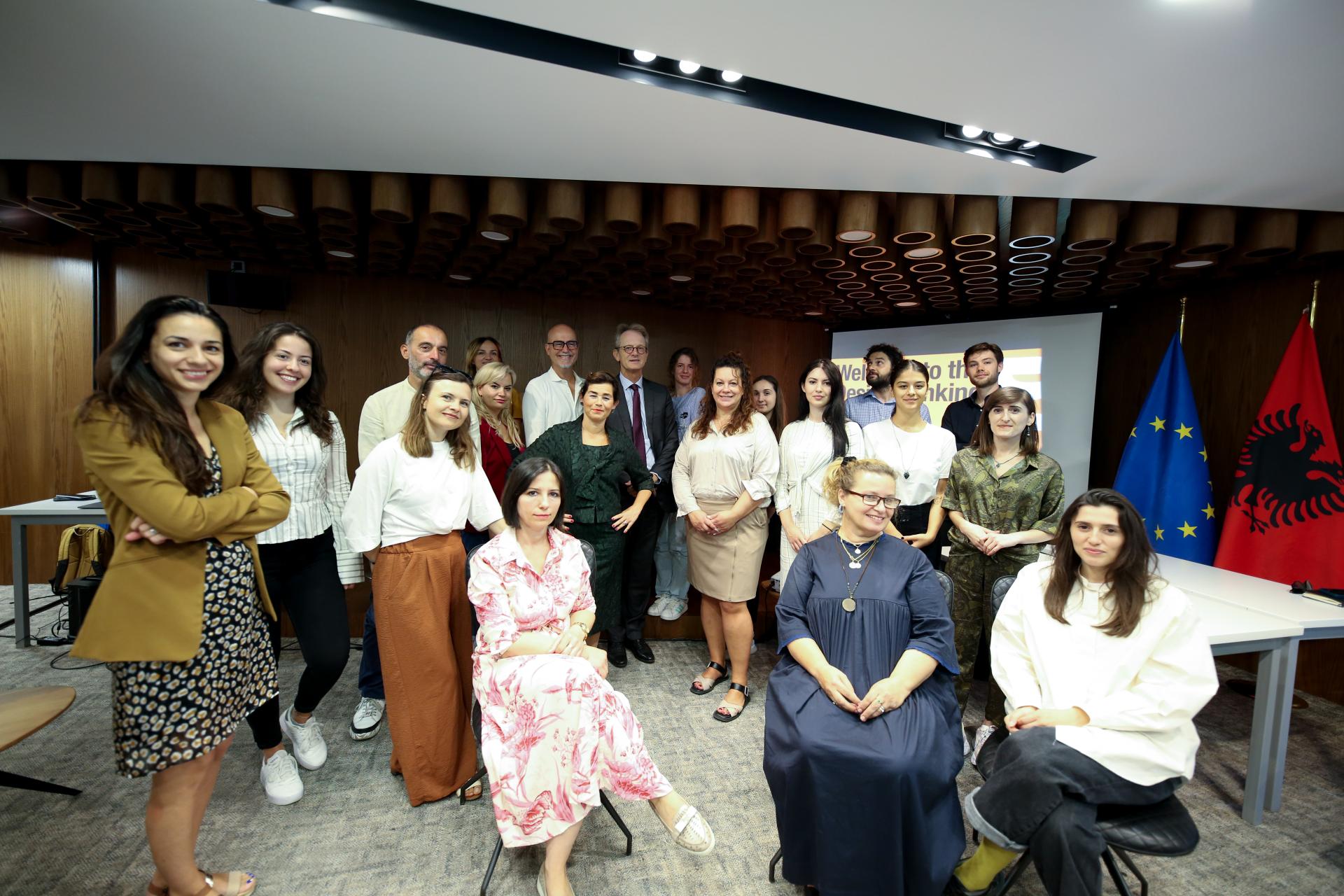Eco Alternative Art
Basic information
Project Title
Eco Alternative Art
Full project title
Eco Alternative Art Project Albania-Serbia 2013-2023 Empowering Communities via Sustainable Fashion
Category
Shaping a circular industrial ecosystem and supporting life-cycle thinking
Project Description
Eco Alternative Art is a unique project born in Albania in 2013. Times were dark, waste was everywhere, and no one cared. We pioneered eco-fashion, eco-design and circular activities through an inclusive platform connecting people, art, culture, and environmental protection. We expanded in Serbia in 2019, because sustainable green action knows no border. We promote diversity, local designers, intergenerational interaction, to regain a sense of belonging. A truly vibrant moment for everyone!
Geographical Scope
Cross-border/international
Project Region
CROSS-BORDER/INTERNATIONAL: Albania, Serbia
Urban or rural issues
Mainly urban
Physical or other transformations
It refers to other types of transformations (soft investment)
EU Programme or fund
Yes
Which funds
Other
Other Funds
2013 - Sponsored by Raiffeisen Bank <br />
2014- Raiffeisen Bank <br />
2015- Raiffeisen Bank <br />
2016 - Raiffeisen Bank <br />
2017 - Raiffeisen Bank <br />
2018 - Funded by GIZ <br />
2019 - Funded by UNDP <br />
2023 - Funded by the EU DELEGATION TO ALBANIA
Description of the project
Summary
Eco Alternative Art is a unique project implemented in Albania since 2013, pioneering sustainable, eco-design and circular activities through an inclusive platform connecting people, art, culture and environmental protection. The project expanded in Serbia in 2019. Activities stopped under Covid but restarted in 2022. A new phase is in the making with the Digital Circular Platform by end of 2023.
The objective of the project Eco Alternative Art is to promote sustainable fashion and waste reuse by reconnecting with nature, regaining a sense of belonging in diverse communities, shaping a circular industrial ecosystem, and supporting life-cycle thinking.
The project also aims to promote eco-designed products by local designers through participatory events. As well, the project promotes an inclusive, multi-level and transdisciplinary digital platform that aims to increase green jobs.
Target groups value diversity and equal access: central and local authorities, policy-makers, SMEs, artists, eco-designers, universities, schools, media, and a large audience of citizens.
Achieved outcomes:
• Reduced environmental impact, i.e. reduction of household waste through creative reuse and upcycling initiatives;
• Increased citizens’ awareness on circularity, eco-design, waste prevention, through a positive and ;
• Adoption of sustainable fashion practices in the communities (fast fashion is out of fashion);
• Creation of a tradition with yearly Eco-Fashion Festival bringing a diverse community together for a joyful and dynamic experience, with great media coverage;
• Empowerment of marginalized communities through skill development and income generation opportunities;
• Promotion of local designers and artisans who prioritize sustainable practices.
• Creation of a circular industrial ecosystem by supporting life-cycle thinking and waste reduction.
• Increased access to eco-designed products through the digital platform, promoting conscious consumerism.
The objective of the project Eco Alternative Art is to promote sustainable fashion and waste reuse by reconnecting with nature, regaining a sense of belonging in diverse communities, shaping a circular industrial ecosystem, and supporting life-cycle thinking.
The project also aims to promote eco-designed products by local designers through participatory events. As well, the project promotes an inclusive, multi-level and transdisciplinary digital platform that aims to increase green jobs.
Target groups value diversity and equal access: central and local authorities, policy-makers, SMEs, artists, eco-designers, universities, schools, media, and a large audience of citizens.
Achieved outcomes:
• Reduced environmental impact, i.e. reduction of household waste through creative reuse and upcycling initiatives;
• Increased citizens’ awareness on circularity, eco-design, waste prevention, through a positive and ;
• Adoption of sustainable fashion practices in the communities (fast fashion is out of fashion);
• Creation of a tradition with yearly Eco-Fashion Festival bringing a diverse community together for a joyful and dynamic experience, with great media coverage;
• Empowerment of marginalized communities through skill development and income generation opportunities;
• Promotion of local designers and artisans who prioritize sustainable practices.
• Creation of a circular industrial ecosystem by supporting life-cycle thinking and waste reduction.
• Increased access to eco-designed products through the digital platform, promoting conscious consumerism.
Key objectives for sustainability
Organised 8 large open-air events showcasing the creations made from recycled materials, with the participation of schools, universities, and the community, to raise environmental awareness, promote sustainable way of life, celebrating diversity, promoting intergenerational exchanges, and increasing social interaction. We gathered 25 to 30 persons at start, then the events gathered each year more and more participation and we reached with a max of 120 participants in its most edition. the audience has always been between 200 - 300 people watching the eco fashion with a direct impact on awareness.
Adoption of sustainable fashion practices in the communities (fast fashion is out of fashion); reuse of textile and household waste, debates over the social and environmental impact of over-consumerism in workshops with schools and universities.
Creation of a tradition with yearly Eco-Fashion Festival bringing a diverse community together for a joyful and dynamic experience, with great media coverage;
Each year schools and universities were involved in environmental awareness workshops talking about textile waste, over-consumerism and household waste. The students and pupils were called to act and collect waste at school from their friends and their homes, and to create pieces of art and transform waste into wearable piece of art. we conveyed the message that waste has a value and can be transformed and not wasted. Workshops and training sessions organised since 2013 in local communities on reducing household waste with production of handcrafted decorations, accessories, eco-fashion/dresses, and eco-designed furniture. Every year, more than 120 people participated. The project is sustainable.
Adoption of sustainable fashion practices in the communities (fast fashion is out of fashion); reuse of textile and household waste, debates over the social and environmental impact of over-consumerism in workshops with schools and universities.
Creation of a tradition with yearly Eco-Fashion Festival bringing a diverse community together for a joyful and dynamic experience, with great media coverage;
Each year schools and universities were involved in environmental awareness workshops talking about textile waste, over-consumerism and household waste. The students and pupils were called to act and collect waste at school from their friends and their homes, and to create pieces of art and transform waste into wearable piece of art. we conveyed the message that waste has a value and can be transformed and not wasted. Workshops and training sessions organised since 2013 in local communities on reducing household waste with production of handcrafted decorations, accessories, eco-fashion/dresses, and eco-designed furniture. Every year, more than 120 people participated. The project is sustainable.
Key objectives for aesthetics and quality
These events featured eco-fashion shows, art and craft exhibitions, and interactive activities to engage the audience, develop their critical thinking, and raise awareness about conscious consumerism, sustainable fashion, and waste reuse. The emotional and cultural benefit, as the Festival becomes tradition, parents involved, grand-parents and children, the aesthetics of a fashion show with models (pro and amateurs), music and setup, all creating a vibrant moment of true happiness and sense of belonging to an eco-responsible community. It is a cultural highlight of Tirana's life, bringing a great experience to the community.
Key objectives for inclusion
The events were organised in a collaborative and inclusive manner, with and for artists, local businesses, and organizations with the aim to create a vibrant marketplace alongside the eco-fashion shows where eco-designed products could be sold, supporting local designers and artisans. We had the participation of the Social Business "Recycling Jeans" and "nji mar e nji mrapsht", and the the artist Erjon Kraja with his big plastic bottle installation named Fosile. We involved children with disabilities.
Results in relation to category
1. Reduced environmental impact of waste, advanced circularity and development of Eco-Design products
• Workshops and training sessions organised since 2013 in local communities on reducing household waste with production of handcrafted decorations, accessories, eco-fashion/dresses, and eco-designed furniture. Every year, more than 150 people participated.
• Empowered and encouraged local artisans and designers to develop innovative techniques for transforming waste materials into high-quality fashion products.
• Inspired community-based production centres, such as NGOs, where individuals could contribute to the creation of these products, fostering a sense of belonging and community involvement.
For instance a Croatian eco-designer started to make dolls with left over textiles, One with Jewelleries hand made by Keti.
2. Organised 8 Sustainable Fashion events between 2013 and 2022
These events showcased the creations made from recycled materials, with the participation of schools, universities, and the community, to raise environmental awareness, promote sustainable way of life, celebrating diversity, promoting intergenerational exchanges, and increasing social interaction. Gathering 60 to 70 persons at start, the events gathered more than 150 people in its most recent edition.
3. Organised Environmental Awareness Workshops in Schools and Universities to educate students about the importance of environmental sustainability and the impact of the fashion industry on the environment.
4. Eco Fashion Show
Organized an annual eco fashion show, showcasing the creations of local designers who prioritize sustainable practices and use eco-friendly materials. The fashion show served as a platform to promote eco-designed products, raise awareness about sustainable fashion, and celebrate local talent. Collaborated with fashion industry professionals, influencers, media to amplify the reach and impact of the event.
• Workshops and training sessions organised since 2013 in local communities on reducing household waste with production of handcrafted decorations, accessories, eco-fashion/dresses, and eco-designed furniture. Every year, more than 150 people participated.
• Empowered and encouraged local artisans and designers to develop innovative techniques for transforming waste materials into high-quality fashion products.
• Inspired community-based production centres, such as NGOs, where individuals could contribute to the creation of these products, fostering a sense of belonging and community involvement.
For instance a Croatian eco-designer started to make dolls with left over textiles, One with Jewelleries hand made by Keti.
2. Organised 8 Sustainable Fashion events between 2013 and 2022
These events showcased the creations made from recycled materials, with the participation of schools, universities, and the community, to raise environmental awareness, promote sustainable way of life, celebrating diversity, promoting intergenerational exchanges, and increasing social interaction. Gathering 60 to 70 persons at start, the events gathered more than 150 people in its most recent edition.
3. Organised Environmental Awareness Workshops in Schools and Universities to educate students about the importance of environmental sustainability and the impact of the fashion industry on the environment.
4. Eco Fashion Show
Organized an annual eco fashion show, showcasing the creations of local designers who prioritize sustainable practices and use eco-friendly materials. The fashion show served as a platform to promote eco-designed products, raise awareness about sustainable fashion, and celebrate local talent. Collaborated with fashion industry professionals, influencers, media to amplify the reach and impact of the event.
How Citizens benefit
Each year Albanian public and private schools and universities were involved in environmental awareness workshops to steer discussion and prevent textile waste, find alternatives to over-consumerism and production of waste.
The students and pupils were called to act and collect waste at school from their friends and their homes to create innovative and artistic elements, and transform waste into wearable pieces of art. We convey the message that waste has a value, can be transformed, recycled, upcycled and therefore not trashed and wasted.
The main benefit was the transformation of their mind-set and how stakeholders started to comprehend waste as a valuable resource that can be reused and repurposed. As a positive impact, we can note that several start-ups were born thanks to this process, organization of these events based on the environmental awareness workshops.
We can also note that social initiatives emerged from Civil Society Organisations and enterprises. They could promote their products and works, something that was completely new and unique all these years in Albania. The artists could also promote their work and help pass environmental messages in a powerful way. The impact was huge on the community, the media, and participated to create a open-minded atmosphere by steering debates, as reflected by the growing number of participants each year. These events and workshops were both educational and fun, attracting and involving diverse communities who could benefit from a larger audience. Instead of the same issues repeated over and over in the media, this platform created a new element in the landscape, enabling new forms of communication, new ideas, breaking barriers between people, businesses, art, or media. Other discussions and talks followed outside the platform, proving that talks about environmental protection and social inclusion are not limited to circles of specialists and decision-makers but is truly a citizen priority.
The students and pupils were called to act and collect waste at school from their friends and their homes to create innovative and artistic elements, and transform waste into wearable pieces of art. We convey the message that waste has a value, can be transformed, recycled, upcycled and therefore not trashed and wasted.
The main benefit was the transformation of their mind-set and how stakeholders started to comprehend waste as a valuable resource that can be reused and repurposed. As a positive impact, we can note that several start-ups were born thanks to this process, organization of these events based on the environmental awareness workshops.
We can also note that social initiatives emerged from Civil Society Organisations and enterprises. They could promote their products and works, something that was completely new and unique all these years in Albania. The artists could also promote their work and help pass environmental messages in a powerful way. The impact was huge on the community, the media, and participated to create a open-minded atmosphere by steering debates, as reflected by the growing number of participants each year. These events and workshops were both educational and fun, attracting and involving diverse communities who could benefit from a larger audience. Instead of the same issues repeated over and over in the media, this platform created a new element in the landscape, enabling new forms of communication, new ideas, breaking barriers between people, businesses, art, or media. Other discussions and talks followed outside the platform, proving that talks about environmental protection and social inclusion are not limited to circles of specialists and decision-makers but is truly a citizen priority.
Physical or other transformations
It refers to other types of transformations (soft investment)
Innovative character
The project enhanced the creation of new start-ups, inspired large communities, enhanced critical thinking and reflection on how waste could be used. The project motivated the social enterprises to work more in the direction of Circular Economy, and demonstrated the need to create a platform where eco-designers could promote their products and services.
Disciplines/knowledge reflected
The project was initially designed to provoke debates on over-consumerism, the waste pollution and most importantly the solutions through public awareness and reuse/recycling. We had to be creative, avant-guarde, and pragmatic, using science-based knowledge on waste management, involving social researchers, educational experts, as well as legal advisers when discussing how to improve the legal framework towards circular economy.
Our project was steered by a small interdisciplinary team, relying on each sphere of competences. All actors interacted with the same goal in mind: to provide a great experience to our target groups through interesting events.
Our project was steered by a small interdisciplinary team, relying on each sphere of competences. All actors interacted with the same goal in mind: to provide a great experience to our target groups through interesting events.
Methodology used
Our methodology can be described with the following blocks, which can sometime overlap, but are here represented chronologically:
1. Pre-communication
2. Planning and staffing
3. Reach out and motivation of stakeholders
4. Confirmation of participation of each partner
5. Funding and finalization of work plan
6. Launch of programme: organizations of workshops, events, with media presence
7. Debriefing/reporting
1. Pre-communication
2. Planning and staffing
3. Reach out and motivation of stakeholders
4. Confirmation of participation of each partner
5. Funding and finalization of work plan
6. Launch of programme: organizations of workshops, events, with media presence
7. Debriefing/reporting
How stakeholders are engaged
Local authorities such as municipality and organizations such as Urban Research Institute (URI) played a significant role in the project's implementation. URI provided guidance, resources, and support to ensure the project's smooth execution.
The partner municipalities provided authorisations for the use of public spaces and ensured police presence for the safety of all.
URI also supported the implementation of the events, helping to bridge the local and national levels thanks to their extensive knowledge and know-how. Their involvement ensured that the project benefited from a national perspective, tackling environmental challenges and opportunities in the frame of EU accession.
At the national level, government agencies and relevant national organizations were engaged in the project. They provided spaces and attended the events.
We were delighted to host The Mayor of Tirana and the Deputy Minister of environment at the circular design festival, aligning the project with national priorities such as waste management.
At the European level, several EU institutions were involved in the project for funding, visibility, attendance, guidance, etc. Several European stakeholders facilitated knowledge exchange, promoted stakeholders collaboration, and ensured that the project was aligned with European policies. It ensured that the project was inclusive, and impactful project outcome.
The partner municipalities provided authorisations for the use of public spaces and ensured police presence for the safety of all.
URI also supported the implementation of the events, helping to bridge the local and national levels thanks to their extensive knowledge and know-how. Their involvement ensured that the project benefited from a national perspective, tackling environmental challenges and opportunities in the frame of EU accession.
At the national level, government agencies and relevant national organizations were engaged in the project. They provided spaces and attended the events.
We were delighted to host The Mayor of Tirana and the Deputy Minister of environment at the circular design festival, aligning the project with national priorities such as waste management.
At the European level, several EU institutions were involved in the project for funding, visibility, attendance, guidance, etc. Several European stakeholders facilitated knowledge exchange, promoted stakeholders collaboration, and ensured that the project was aligned with European policies. It ensured that the project was inclusive, and impactful project outcome.
Global challenges
- Waste pollution => waste reduction, reuse, recycle and upcycle
- over-consumerism => understanding the benefit of less is more
- disconnection with nature => rehabilitating nature in its own rights
- working in silo => working groups, large public events, multidisciplinary activities
- new form of media: early 2013 increasing the use of social media
- over-consumerism => understanding the benefit of less is more
- disconnection with nature => rehabilitating nature in its own rights
- working in silo => working groups, large public events, multidisciplinary activities
- new form of media: early 2013 increasing the use of social media
Learning transferred to other parties
This project can be transferred and replicated in other regions, taking into account local specificities, customs and cultural context.
It is highly replicable with the condition of a project holder that is passionate about the topic, willing to work countless hours and transfer the positive energy to a larger group.
The project continues, because we want more great results. Next step is to launch a Digital Platform for Eco-Designed Products by end of 2023. The Digital Platform is currently under development. Beta version is available here: https://www.ecoalternativeart.com
The Platform will capitalize on 10 years’ experience. It is necessary to develop an open digital platform where local designers and artisans are able to showcase and sell their eco-designed products. This new web platform will enable scaling up the outreach in an innovative way (first platform of its kind in Western Balkans), and can also be easily transferred and replicated.
The launch and promotion of the platform will be done through social media campaigns, partnerships with influencers, and collaborations with sustainable fashion organizations.
The new platform will provide important resources to the public, engage practitioners at various levels and become a hub for information on sustainable fashion, waste reuse, and eco-design to continue to educate and inspire citizens.
It is highly replicable with the condition of a project holder that is passionate about the topic, willing to work countless hours and transfer the positive energy to a larger group.
The project continues, because we want more great results. Next step is to launch a Digital Platform for Eco-Designed Products by end of 2023. The Digital Platform is currently under development. Beta version is available here: https://www.ecoalternativeart.com
The Platform will capitalize on 10 years’ experience. It is necessary to develop an open digital platform where local designers and artisans are able to showcase and sell their eco-designed products. This new web platform will enable scaling up the outreach in an innovative way (first platform of its kind in Western Balkans), and can also be easily transferred and replicated.
The launch and promotion of the platform will be done through social media campaigns, partnerships with influencers, and collaborations with sustainable fashion organizations.
The new platform will provide important resources to the public, engage practitioners at various levels and become a hub for information on sustainable fashion, waste reuse, and eco-design to continue to educate and inspire citizens.
Keywords
eco-fashion and eco-design
circular economy
waste reduction
social inclusiveness
Citizens’ awareness and participation

